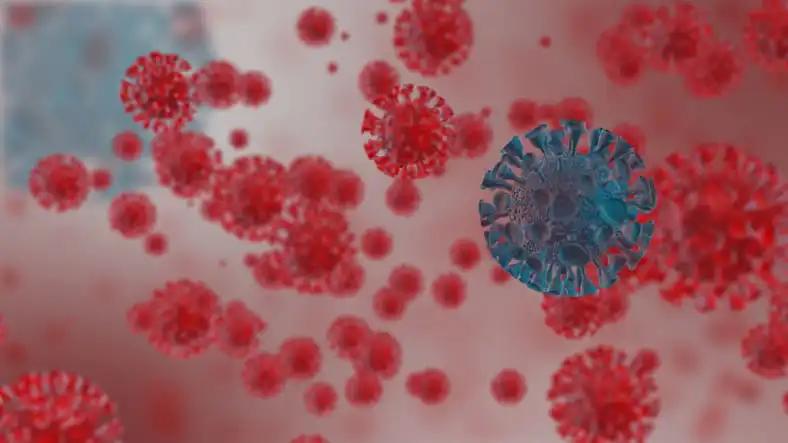KEY TAKEAWAYS
- The phase 3 study registered under NCT03948035 aimed to evaluate the effectiveness of adding elotuzumab to the KRd regimen in transplant-eligible NDMM patients.
- A total of 579 patients were randomized to receive either KRd or E-KRd.
- Patients underwent induction, high-dose chemotherapy with autologous stem cell transplant (ASCT), consolidation, and maintenance therapy.
- The study concluded that adding elotuzumab to KRd significantly improved the early, deep MRD-negative remission rate in transplant-eligible NDMM patients. It highlighted the potential benefit of incorporating elotuzumab into front-line treatment regimens for NDMM patients.
Triplet or quadruplet induction regimens followed by high-dose chemotherapy (HDT) and autologous stem cell transplant (ASCT) are standard treatments for patients with newly diagnosed multiple myeloma (NDMM). Carfilzomib (K), lenalidomide (R), and dexamethasone (d, KRd) have demonstrated exceptional efficacy. However, the role of elotuzumab (E) in NDMM is still uncertain.
Transplant-eligible (TE) newly diagnosed multiple myeloma (NDMM) patients up to 70 years old were randomly assigned 1:1. They received six cycles of KRd or E-KRd, with chemomobilization for autologous stem cell transplant (ASCT) after the third cycle. A single high-dose therapy (HDT) ASCT was administered, followed by four consolidation cycles of KRd or E-KRd and maintenance with either R or ER
Induction (IND, 28-day C) comprised K on D1/2, 8/9, C1 5/16 (20 mg/m² IV on D 1/2 in C1 and 36 mg/m² afterward), R (25 mg PO, D1-21) and d (36/40 mg D 1, 8, 15, 22), E was given on D 1, 8, 15, and 22 (C1/C2) and D 1 and 15 (C3-6; 10 mg/kg IV). The first co-primary endpoint assessed the rate of patients achieving ≥VGPR and being MRD-negative after restaging with bone marrow analysis by next-generation flow cytometry.A total of 579 pts were randomly assigned (574 of whom received treatment) to 52 sites between August 2018 and October 2021 and were also involved in an intent-to-treat analysis. The median age of patients involved in the trial was 60 (range, 31-71)According to the International Staging System, about 15.4% of patients had ISS stage III disease About 108 patients out of 459 patients (23.5%) had higher levels of risk cytogenetics (del[17p]; t[4;14]; t[14;16]; ≥ 3 1q21 copies). Of 574, 525 pts (91.5%) received 6 IND cycles. About 145 (49.8%) of E-KRd patients and 102 (35.4%) of KRd patients have achieved MRD negativity and ≥ VGPR, respectively (p=.0005). A total of 212 (72.9%) of E-KRd versus 177 (62.5%) of KRd patients experienced ≥ grade 3 treatment-emergent AEs (TEAEs). Febrile neutropenia was observed in 26 (6.4%) individuals receiving E-KRd and in 14 (4.9%) patients receiving KRd Grade 3/4 thrombocytopenia was observed in 12.4% (36/291) of E-KRd and 10.6% (30/288) of KRd patients. Pneumonia affected 8.2% (24/291) of E-KRd and 6.4% (18/288) of KRd patients. Grade 3/4 cardiac events were reported in 5.5% (16/291) of E-KRd and in 5.7% (16/280) of KRd patients (grades 3 to 5). COVID-19 infections were relatively infrequent, occurring in 4% (12/291) of E-KRd and 3.2% (9/288) of KRd patients with one grade 5 event each (0.3% and 0.4%, respectively). About 3 (1.0%) pts on E-KRd vs. 7 (2.5%) n KRd died on IND because of infection (N=3), MM progression (2), AML (1), a cardiac event (N=1), other (N=3).
This study demonstrated that incorporating elotuzumab into KRd resulted in a significant enhancement in achieving early, deep (≥ VGPR) MRD-negative remission in transplant-eligible newly diagnosed multiple myeloma (TE NDMM) patients. However, E-KRd patients experienced slightly more treatment-emergent adverse events (TEAEs), primarily related to hematotoxicity. Notably, this is the first study to exhibit a benefit from adding elotuzumab to a frontline treatment regimen.
Source: https://meetings.asco.org/abstracts-presentations/218468
Clinical Trial: https://classic.clinicaltrials.gov/ct2/show/NCT03948035
Stefan Knop, Thomas Stuebig, Miriam Kull, Richard Greil, Normann Steiner, Florian Bassermann, Axel Nogai, Marie von Lilienfeld-Toal, Snjezana Janjetovic, Karolin Trautmann-Grill, Max Bittrich, Monika Martha Engelhardt, Anette Hoferer, Sebastian Theurich, Mascha Binder, Niklas Zojer, Heinz A. Duerk, Monika Brueggemann, Swantje Held, Hermann Einsele, Deutsche Studiengruppe Multiples Myelom DOI: 10.1200/JCO.2023.41.16_suppl.8000 Journal of Clinical Oncology 41, no. 16_suppl (June 01, 2023) 8000-8000.



